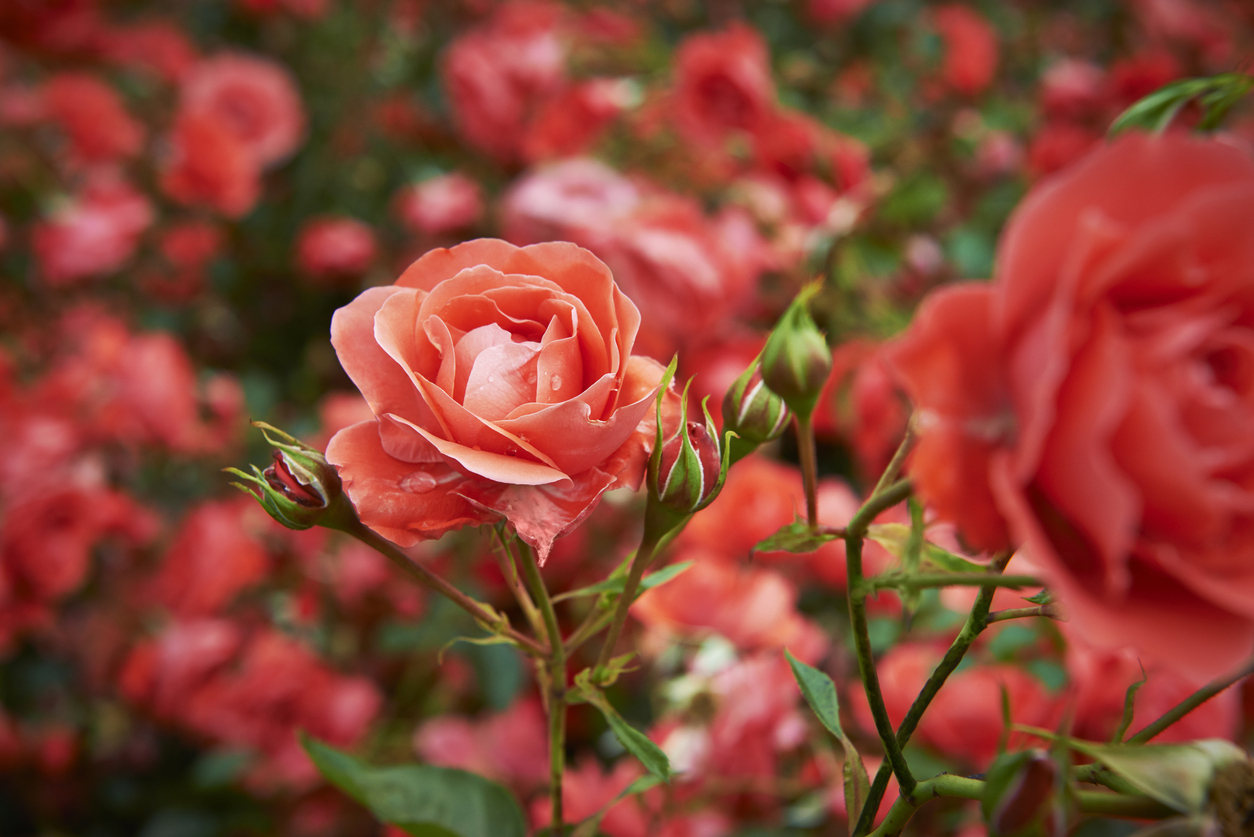
Let your senses be overwhelmed by the fragrant and beautiful display of autumnal roses in the Kanto area.
With mid to late autumn in Japan comes chilly breezes, a kaleidoscope of changing leaves and a glorious floral display. Hailing from Canada where snow quickly follows the magnificent fall leaves, autumnal flowers and flower festivals were a new pleasure when I first moved to Japan. Chief among these cool-weather beauties are roses, which bloom across the nation in spring and fall time.
Below, I introduce five rose gardens in the Tokyo area, each awash with vibrant colors and breathtaking fragrances that make roses a lovely symbol of Japan’s beautiful fall season.
Keisei Rose Garden
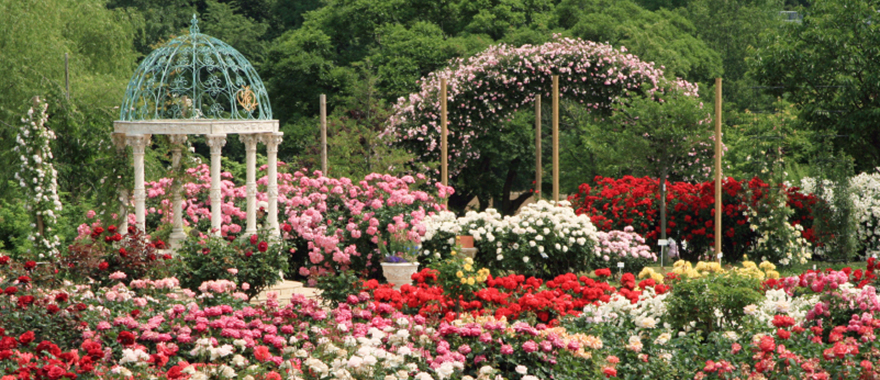 Photo by Keisei Rose Garden
Photo by Keisei Rose Garden
Perhaps one of the furthest gardens on our list from Tokyo—one hour and 15 minutes from Shinjuku station or 50 minutes from Ueno station by train—the Keisei Rose Garden in Yachiyo, Chiba prefecture, is every bit worth the trip. With 1600 different varieties of roses, this garden opened in 1959 and has been winning global rose competitions ever since. Why not explore the cottage garden, where seasonal flowers and roses join in a landscape reminiscent of the English countryside? Or, for fans of the classic manga, The Rose of Versailles, check out the “Veru-Bara” terrace with roses representing the world of the manga.
- Hours: 9 a.m.-5 p.m. daily (in Nov.)
- Address: 755 Owada Shinden, Yachiyo City, Chiba
- Price: Adults: ¥1200, and free for junior high schoolers and younger (in Nov.)
- Access: By train: Take the Tokyo Metro Tozai line (Rapid) and get off at Yachiyo Midorigaoka station; By bus: Get off at Keisei line Yachiyodai station and take a bus to the stop “Keisei Bara-en”. *Parking is available and easily accessible via highway
Kyu Furukawa Gardens
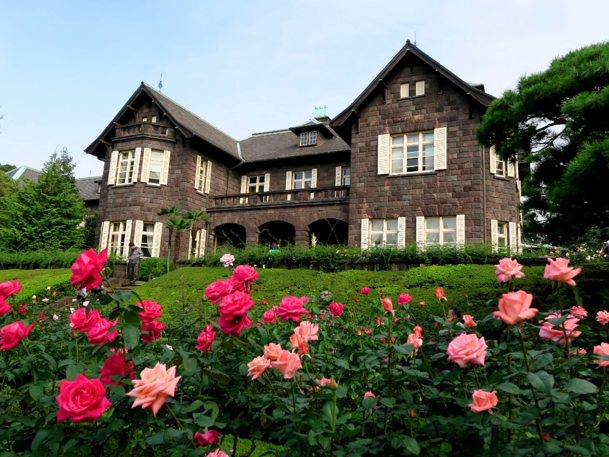
Photo by Kyu Furukawa Gardens
Closer to home is the Kyu Furukawa Gardens which hosts a rose festival in the spring and fall. The western-style mansion and surrounding gardens were designed by Josiah Conder, an English architect whose teachings and work was an important influence on Tokyo’s modernization in the Meiji period. During the autumn rose festival, which runs from early October to mid-November, over 100 varieties of roses from 200 plants burst into flower. They also host a rose concert and events such as discovering the different fragrances of roses. If you want to avoid the rush that comes with the festival itself, some roses continue to bloom into early December as well, intermingling with the changing leaves in a colorful display.
- Hours: 9 a.m.-5 p.m. (last entry 4:30 p.m.) daily (closed on year-end holidays)
- Address: 1-27-39 Nishigahara, Kita-ku, Tokyo
- Price: Adults: ¥150, Seniors: ¥70, and free for primary school children or younger and junior high school students living or attending school in Tokyo
- Access: Take the JR Keihin-tohoku line and get off at Kami-Nakasato station; Take the Tokyo Metro Namboku line and get off at Nishigahara station; Take the JR Yamanote line and get off at Komagome station. *No parking available
Jindai Botanical Gardens
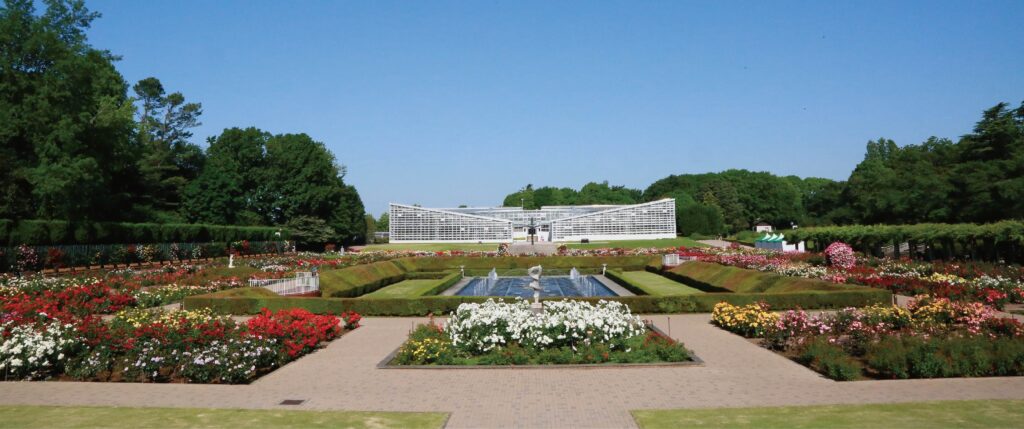 Photo by Jindai Botanical Gardens
Photo by Jindai Botanical Gardens
Located in Chofu City, just a short train ride from Shinjuku station is the lush and beautiful Jindai Botanical Gardens. Officially opened in 1961, what is now referred to as the Jindai Botanical Gardens was originally a nursery for growing the various trees that line Tokyo city streets. To this day, the garden boasts an astounding 100,000 trees and 4800 plant species with some plants being preserved from pre-modern times. The Botanical Gardens are vast, covering several hectares of land, and are famous for having the largest sunken rose garden in Tokyo with 400 varieties of roses and 5200 bushes. The roses fully bloom twice a year, in the spring and fall, and include old to modern varieties with some must-see new species showcased in the international competition rose bed.
- Hours: 9:30 a.m.-5 p.m. (last entry 4 p.m.) daily (closed on Mondays and year-end holidays)
- Address: 5-31-1 Jindaiji Motomachi, Chōfu City, Tokyo
- Price: Adults: ¥500, Seniors: ¥250, Junior high: ¥200, and free for primary school children and younger
- Access: Take the JR Chuo line and get off at Mitaka Station, and then take the Odakyu bus towards Chofu Eki Kitaguchi, getting off at Jindai Shokubutsuen-mae
Yono Park
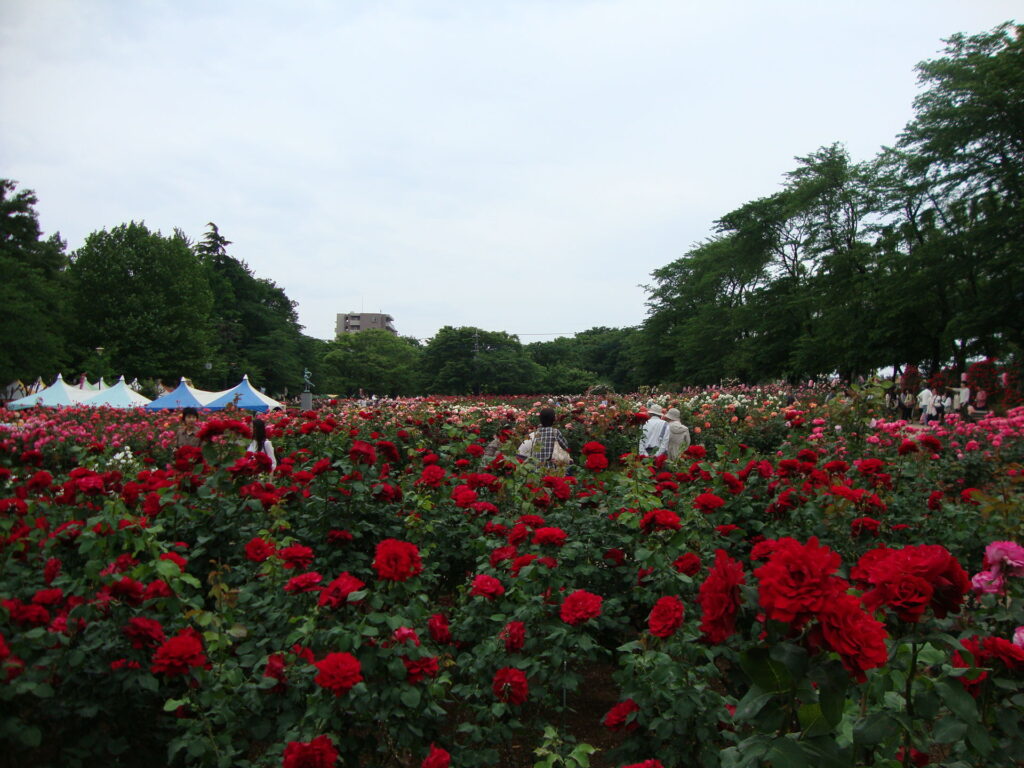 Photo by VSA-itama-1710
Photo by VSA-itama-1710
Yono Park in Saitama City, less than an hour-long trip from Tokyo station, is famous for its wide array of gorgeous roses and cherry blossom trees. The park opened in 1877 and over its 145-year history has displayed an impressive 3000 roses from 180 species. Yono Park hosts a popular spring rose festival and when paired with cherry blossom viewing can become densely crowded with visitors. Luckily, during the fall period, the roses are similarly stunning, but the park is less congested, making it an excellent time to pay a visit. Another bonus of this park is its extensive play spaces and free admission making it a prime choice for families.
- Hours: Open 24 hours/day year-round
- Address: 1-1469-2 Honmachinishi, Chuo Ward, Saitama
- Price: Free!
- Access: By train: Take the JR Saikyo Line and get off at Yono Honmachi Station. The rose garden is approximately a 15-minute walk from the station. *It is recommended to travel to this park via public transport
Ikuta Ryokuchi Park
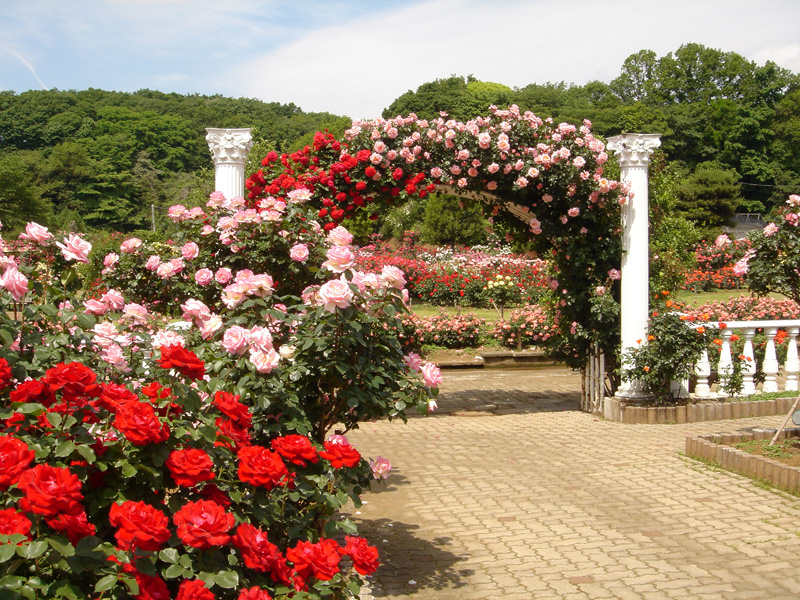 © Photo by Ikuta Ryokuchi Park
© Photo by Ikuta Ryokuchi Park
A half an hour’s train ride from Shinjuku station, the Ikuta Ryokuchi Park includes several attractions such as the city planetarium, art museum and wild bird sanctuary. The park’s Rose Garden, housing blooms in spring and fall, is much beloved in Kawasaki and was originally part of the Mukougaoka Amusement Park, open from 1927 to 2002. When the Amusement Park shut its doors, the citizens of Kawasaki insisted that the roses be saved and incorporated into the nearby Ikuta Ryokuchi Park. In the autumn, this garden showcases 2900 plants with 690 distinct varieties of roses from across the globe. The park is open all year round and in every season there are beautiful flowers to enjoy, such as irises, hydrangeas, camellias and azaleas, so it is worth a visit in all four seasons.
- Hours: 8:30 a.m.-5 p.m. daily (closed on Mondays and year-end holidays)
- Address: 7-1-4 Masugata, Tama Ward, Kawasaki City, Kanagawa
- Price: Free entry (Science Museum, Art Museum and Japan Open Air Folk House Museum have admission fees)
- Access: By train: Take the Odakyu line and get off at Mukougaoka-yuen station or take the JR Nambu line and get off at Noborito station. It’s roughly a 15-20 minute walk to the park from either station stop. *Parking available on site
Head to these gardens to get to know the stately beauty of Japan’s autumnal roses. Whether you are looking for a quick trip or a day immersed in blossoms, the gardens above are worth a spot on your busy fall itinerary.










